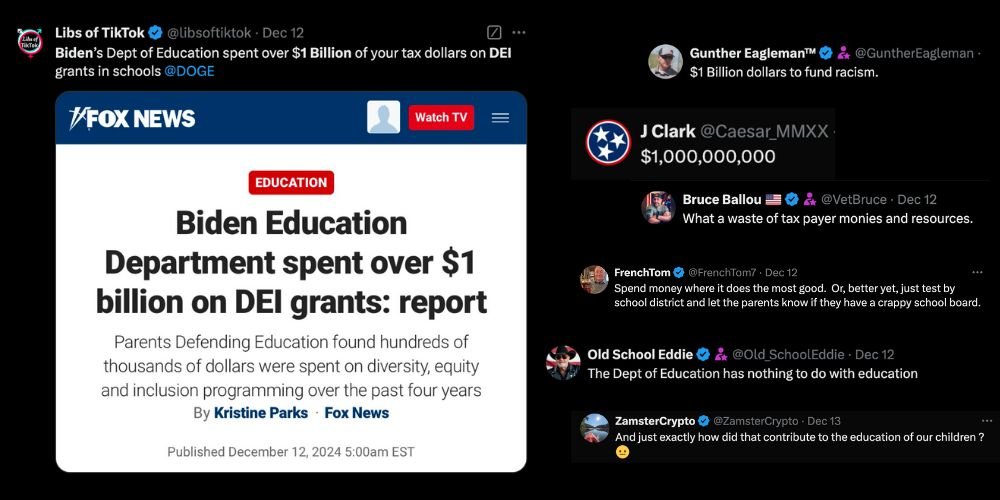In a move that feels more like a bureaucratic flex than a student-first approach, the Biden administration has funneled over $1 billion into diversity, equity, and inclusion (DEI) programs since 2021.
The Department of Education has splashed cash on everything from DEI hiring ($490 million) to mental health services tied to equity initiatives ($170 million).
But does all this money actually improve education, or is it another way to fuel political optics?
DEI Dollars or Political Theater?
Take Montgomery County Schools, for example, which received $21.5 million to enhance “equitable instructional practices.” Or Philadelphia, where $4 million was spent on a restorative justice program.
Critics argue these grants sound good on paper but rarely translate into better reading or math scores.
Instead, they seem to benefit administrators and consultants far more than struggling students.
A Billion-Dollar Question
With American students falling behind globally in core skills like literacy and mathematics, many are questioning the administration’s priorities.
Does pouring money into vague DEI initiatives address the real issues in education, or is it an expensive distraction?

For some, it feels like political grandstanding rather than meaningful reform. Taxpayers deserve accountability.
While Biden’s DEI agenda might win applause from certain corners, the real question is: how does this spending help students achieve their potential?
So far, the results remain a mystery.












